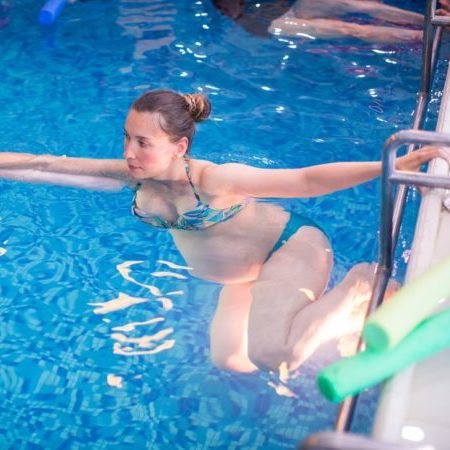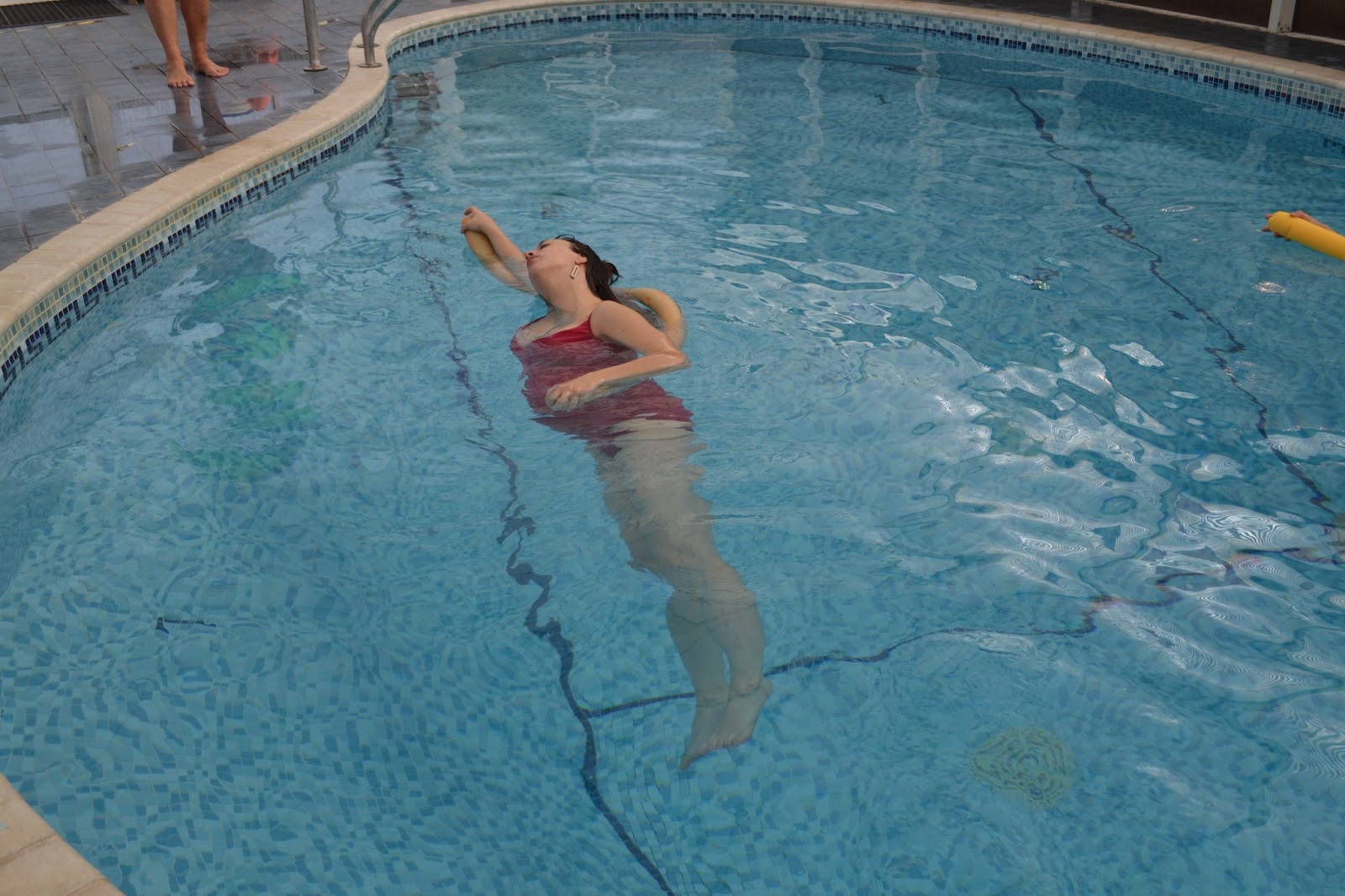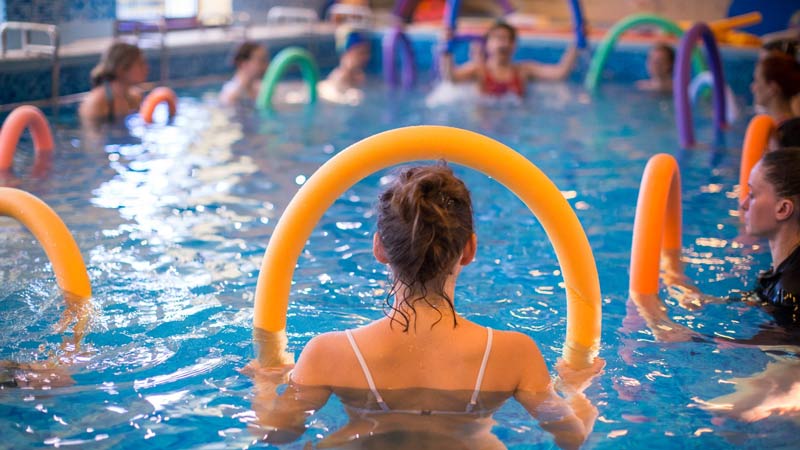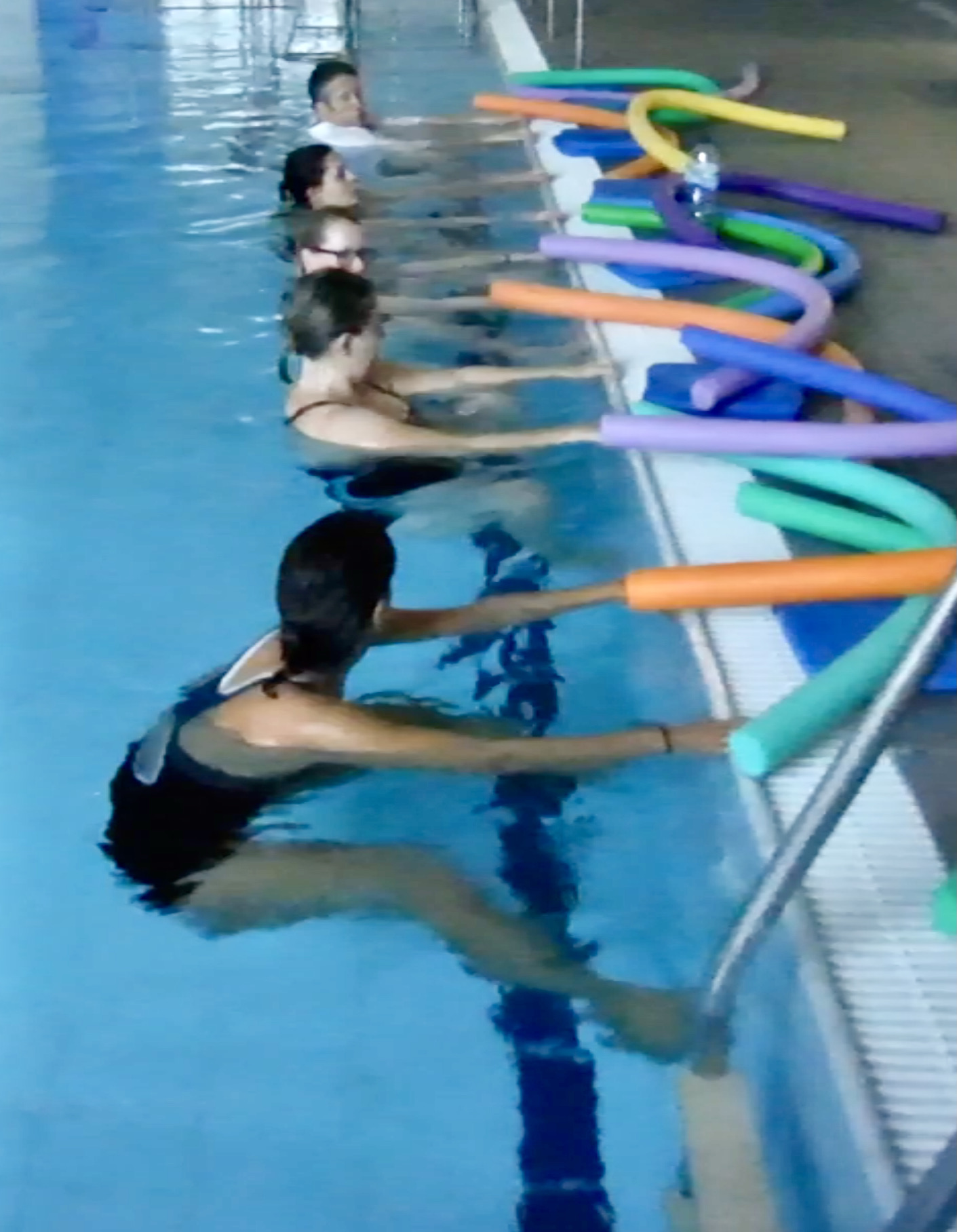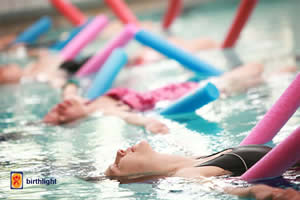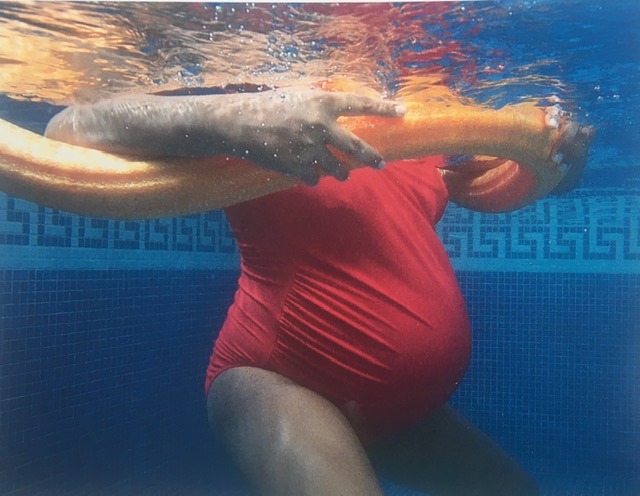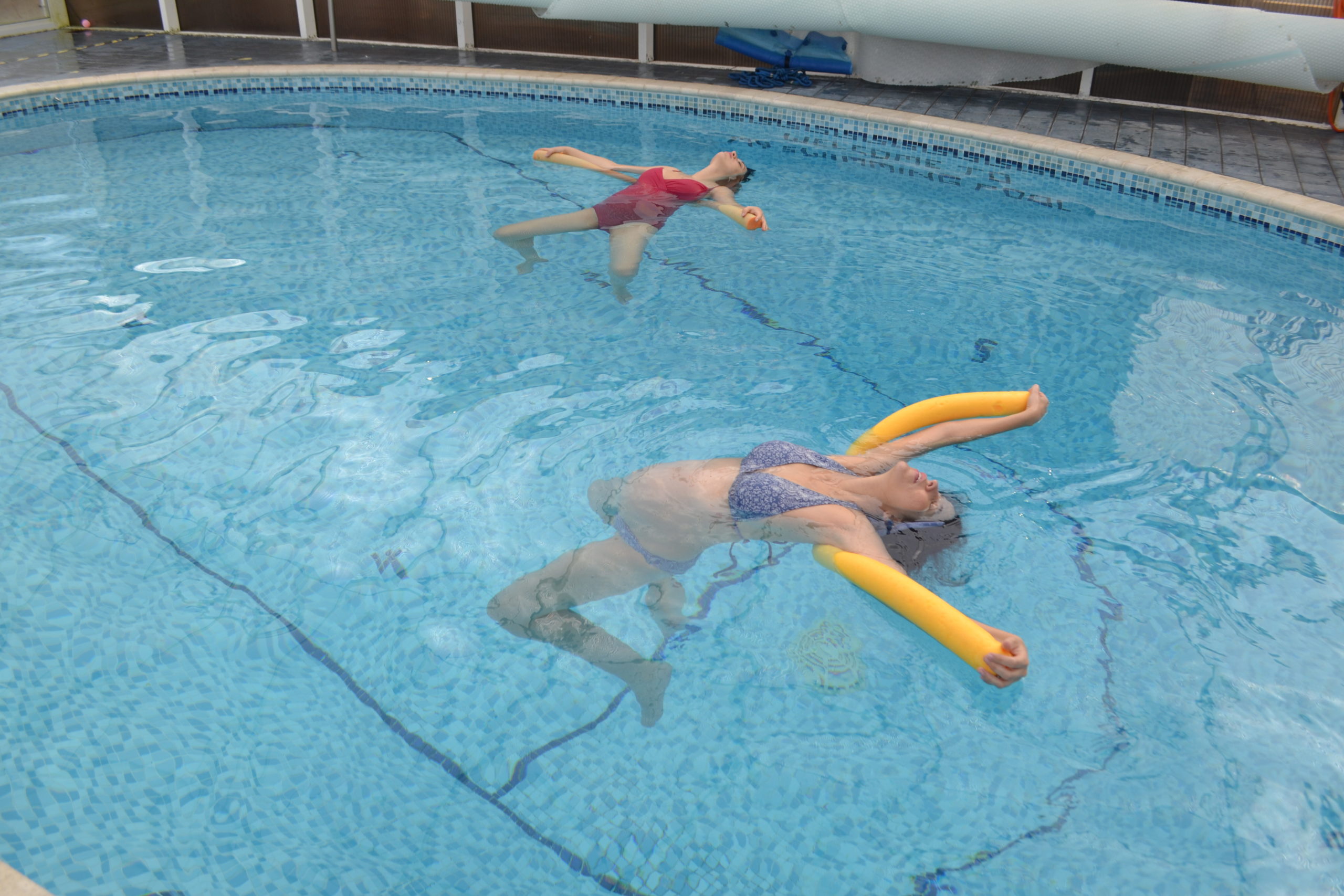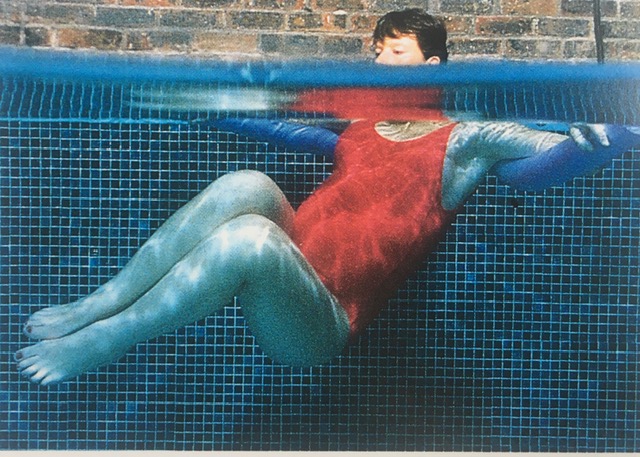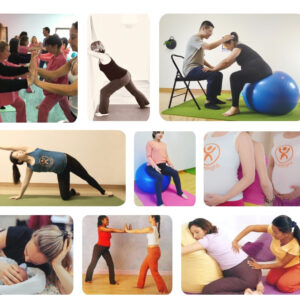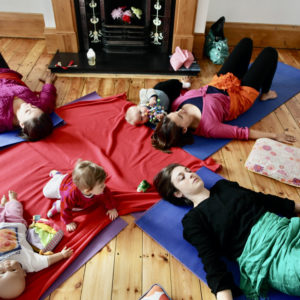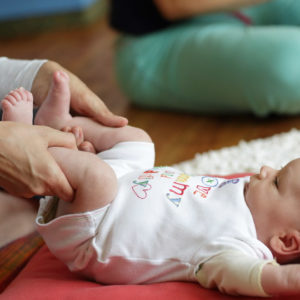Description
Train to offer Birthlight Aquanatal Yoga for Pregnancy classes.
Maximum 8 participants
Course Cost: Early bird until 11th December 2025 £495 new members/ £460 members thereafter £545 new members/ £495 members
See Terms and conditions apply
This is a Blended course- part live online, part face to face:
- Live Online Wednesday 11th & Thursday 12th February 2025 Evenings 6-9pm
- Pool days face to face Friday 20th & Saturday 21st February 9.30am-5pm Brighton, very near the railway station
- Live online Thursday 26th February 2026 Evening 6-9pm
- Followed by coursework completion including teaching & documenting case study classes Final certification is given on successful completion of all coursework which your tutor will mark and give you valuable feedback on to enhance your teaching skills. Ideally coursework is completed within 6 months following the training.
Become a certified & confident Aquanatal Yoga for Pregnancy teacher to offer this gentle yet most effective form of exercise to pregnant women and new mothers. Aqua Yoga allows stretching without straining and overheating, toning without impact and easy access to deep relaxation. Water provides a soothing yet stimulating environment to prepare for birth and most particularly for waterbirth. Aquanatal Yoga gives pregnant women more than just fitness: water facilitates bonding with babies and positive maternal emotions both during pregnancy and after birth in the postnatal period. If you’d like to read more take a look here: Aqua Yoga.
This course could be for you If you enjoy working in water and…
You’d like to help all women enjoy their pregnancy more with gentle, accessible yet effective exercise.
You’d like to offer sessions that include deep relaxation and bonding moments with babies in the womb.
You’d like to offer classes that are welcoming for all, fun and encourage friendships to form.
You’d like to offer classes that help women prepare mentally & physically for any type of birth and motherhood.
Whilst no formal swimming qualification is required you must be a confident swimmer. If you do not already possess a water safety qualification then you will need to complete a Water Rescue qualification but you should check with the venue you will be working at as to which one is appropriate. (https://www.rlss.org.uk/pages/category/additional-qualifications)
The course is open to applicants with an interest in yoga who are:
-
- Swimming, aquacise, aqua aerobics and aqua fitness instructors
- Aqua therapists with a personal experience of yoga
- Midwives
- Yoga teachers with a teaching specialty in prenatal yoga
- Health professionals using water skills including Physiotherapists
- If you are not currently working in a pool or have access to one please research what is available at times you can teach before you enrol on the course.
Ever wondered how you could become an Aquanatal Yoga teacher?
Aquanatal Yoga offers unique and wonderful benefits to pregnant women that are different to aqua fitness classes and different to yoga for pregnancy on dry land.
Aside from the benefits of being or getting active during pregnancy, exercising in water supports all the joints which can be sore and achy during pregnancy. Many people feel less self-conscious in water and find the sessions reduce their stress levels helping them relax more easily and enjoy connecting with the others in the class also going through pregnancy.
In addition, Aquanatal Yoga often relieves pain and discomfort in the lower back, hips and pelvis as the water supports their weight and takes the pressure off. Hydrostatic pressure in water means working muscle chains gently but effectively without strain.
So what is an Aquanatal Yoga Class like?
You can expect a quick check in at the start with the teacher at the beginning to see if you have anything they should be aware of during the session. The Class often starts with some warm ups in a circle where you get to know the names of the other people in the class. You’ll then be lead through breathing and physical practices, some using the floats and different sized woggles to support or facilitate practises some may use the pool wall. Some practices are static but many may travel around the pool combining, steps, glides, turns, floating rotations and adapted swimming strokes. The session usually finishes with a floating relaxation fully supported by woggles.
If you are a Pregnancy Yoga teacher and have a love of water or swimming…
Maybe you’d like to combine your yoga knowledge with the qualities of water and create new sequences in a new medium where you can add practices that are impossible on land.
If you are a midwife…
Maybe you would like to offer sessions that are accessible to more women whatever their fitness levels, who might not consider going to a prenatal yoga class. These sessions can help women get active in pregnancy, reduce stress and gain confidence in the lead up to birth.
If you are a physiotherapist with an interest or speciality in women’s health..
Maybe you’d like to expand your skillset and offer sessions that combine your skills with yoga and water to help all women enjoy their pregnancy more whilst being active, whether that be in group or 1:1 sessions.
If you’re a swim teacher or baby swimming teacher…
Maybe you’d like to gain a new teaching skill and encourage mums-to-be to your pool before they bring their baby along for sessions. Mums enjoying the water during pregnancy will naturally pass this on to their baby.
If you’re another professional working in water with pregnant women…
You may wish to add another element to your therapeutic repertoire or a new type of session to offer in 1:1s or groups.
Frequently asked questions…
- How long is an Aquanatal Yoga class?
Anything from 30-50mins depending on your pool temperature and how long you choose to have for the final relaxation.
- How many women can be in an Aquanatal class?
It depends on the size of the pool. You need enough space for everyone to be able to move around the pool rather than being static on one spot and enough space for their whole body to be floating with noodle supports and no be bumping into other people.
- What is included in an Aquanatal Yoga session?
Classes can be designed around the needs of the women in your class, where they are in their pregnancy and any pregnancy symptoms they may be having. You can teach group or individual sessions. On this training you will learn how to adapt practices and add ones that can help alleviate common symptoms. Classes typically include a welcome to all, warm -ups, practices using the pool wall, various practices with and without floats or noodles with feet on the pool floor or not, adapted swimming strokes, breathing practices, sometimes some partner practices and relaxation.
- Would I be teaching from the poolside or in the pool?
Aquanatal Yoga is taught with the instructor in the pool with the women, often in a circle. This is so you can demonstrate how to use the noodles and floats for the movements and help place them for relaxation. It also creates a friendly caring atmosphere in the class where you’ll be directly on hand if they need help or more explanation.
- Where can I teach Aquanatal classes?
In a pool with a depth of around 1.2 -1.4 metres. The attendees should be able to get their shoulders comfortably under the water without kneeling. While we can do Aqua Yoga in a shallow pool it is not ideal as it is most effective when more of the body is immersed to the chest or neck, without having to bend the knees a lot. The temperature ideally needs to be between 30 to 33 degrees. Although a warm pool is ideal for longer enjoyable supported floating relaxation it is possible to have sessions in a slightly cooler pool and the course covers how to adapt the class format for a cooler temperatures.
Leisure centres and hospitals sometimes have therapy pools which are a good temperature, usually wherever baby swimming classes take place will have a warm pool. You can also try private health clubs and special needs schools.
- What about water safety? Do I need to be a lifeguard? It depends on the protocol of the venue where you are holding classes and if a life guard will be present whilst you are teaching. In any case we strongly recommend that you complete a NRASTC (National Rescue Award for Swimming Teachers and Coaches).
- Do I need to be a Yoga Teacher?
No. You do need to have some personal experience of practising yoga and an interest in furthering your practice and understanding of yoga in order to teach Aquanatal yoga classes.
Do I need a swimming qualification to take this course?
No. Everyone taking this course must be a confident swimmer, but you do not need any swimming awards. Whilst the sessions take place in pools where you can have your feet on the bottom of the pool, we teach lots of practices, including adapted swimming strokes where you won’t be standing on the bottom and you will put your face in the water. Whilst these will be optional for the women in your classes you will need to be able to demonstrate them as a teacher.
What about insurance?
you’ll need to check with your current insurer or professinal body if you’re already working in water. If you’re coming form a Yoga Teacher background you’ll need to add this category to your insurance policy and we recommend you look at BGi to compare details and costs.
Can I start teaching straight after the course?
Yes, you can start teaching for the purpose of completing your coursework to complete all the criteria to receive your final full teaching certificate. On sucessful completion of the live online and in-person pool days you’ll be issued with a certificate of attendance valid for 6 months whilst you teach and document your case study classes for the courseowrk. Extensions may be given up to 12 months form the end of your training days.
· How is the course assessed?
The course is partly assessed by your tutor during the live online and in person days at the pool, to make sure that you can demonstrate the practices effectively and understand the theory. The coursework submitted is carefully read and commented on by your tutor to make sure we are confident in your abilities to teach safely and effectively and to give you guidance on how to further your skills and understanding.
| Pool days at | Little Dippers
40 Upper Gardner Street Brighton East Sussex BN1 4AN https://littledippers.co.uk/little-dippers-swim-centre |
| Tutor | Katy Offer |
| Qualification | Birthlight Aquanatal Yoga for Pregnancy teacher certificate
Full attendance of all sessions is expected. All participants should have relevant insurance to teach their case study classes for their coursework completion. Insurance may be obtained from BGi (https://bgi.uk/associated-groups/birthlight/) and other providers. |
| Contact Hours | 24 contact hrs |
| Equipment Recommended: | Swimming kit, towels, kit bag
Noodles and swim floats for online practice |
| Max Participants: | 8 |
| New membership included in price? (y/n) | Yes |
| Tutor created LearnDash material? (y/n) | Yes |
| Coursework included? (y/n) | Coursework includes planning and documenting case study classes, full feedback is given by the tutor to support your learning experience and develop your skills. |
| Manual and online resources | A digital Manual will be shared with all students. Online resources include film clips of practices taught in the pool to review again after the course and help you integrate them all. |
